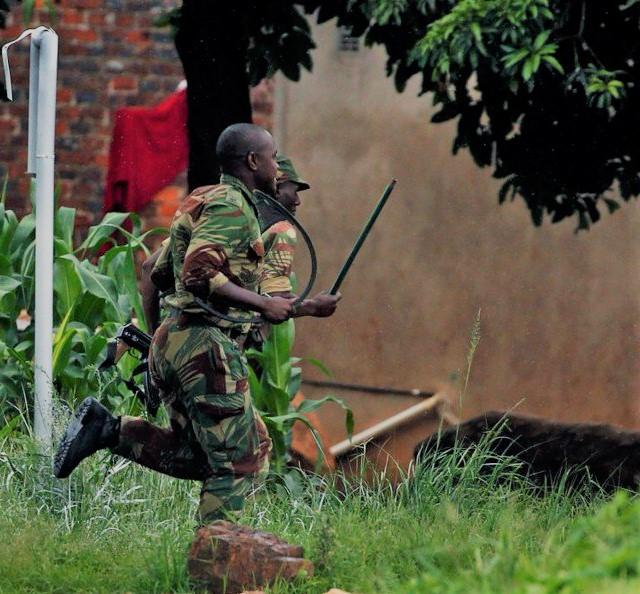A Harare court has ordered the Zimbabwe National Army (ZNA) Commander Lieutenant General Anselem Nhamo Sanyatwe and Minister of Defence, Oppah Muchinguri-Kashiri, to pay US$29 000 in compensation to another protestor who was brutally attacked and shot during the 2019 shutdown protests.
Hundreds of people were severely brutalised during the January shutdown protests when the military was deployed to crush anti-government protests that occurred countrywide spurred by an increase in fuel prices and worsening standards of living.
According to the Zimbabwe Lawyers for Human Rights (ZLHR), some victims of the 2019 shutdown protests have begun accessing justice after a Harare Magistrate on Monday ordered the ZNA commander and the defence minister to pay US$29 182 as damages to Felix Mafondokoto.
Mafondokoto was shot by a soldier in Chitungwiza during the 2019 protests and had initially asked the court for US$49 000 in damages.
“Mafondokoto, who suffered severe injuries from the shooting and still has some bullet fragments lodged in his body, was assisted by Kossam Ncube of ZLHR to sue Sanyatwe and Hon. Muchinguri for US$49 000 in damages for the violation of his fundamental rights after he was shot by a soldier in January 2019 in Chitungwiza,” said the ZLHR in a statement.
This development follows another case where a civil court has ordered Muchinguri-Kashiri, and the Lt. General Sanyatwe, to pay more than ZiG 41 000 to a Harare man, Muchademba Muponde, who soldiers severely beat during the 2019 violent shutdown protests.
Initially, the defence minister and the ZNA commander had claimed the soldiers who assaulted Muponde were under the control of the Zimbabwe Republic Police (ZRP), not the ZNA as they had been deployed to support the police in restoring law and order.
ZLHR said Mafondokoto asked the court to compensate him for the pain and suffering he endured.
Mafondokoto suffered “nervous shock, loss of earnings and medical expenses, which he incurred as he was hospitalised for treatment,” said the human rights organisation.
The January 2019 crackdown was described by the Zimbabwe Human Rights NGO Forum as one of the “darkest episodes in post-independent” in the country as the government used the state machinery to instil fear in its own citizens.
The Forum noted that during the period January 14 to February 5, 2019, they documented 1 803 human rights violations, including 17 extra- judicial killings and 17 cases of rape and sexual violence in an onslaught that was of higher scale from the violations witnessed on August 1, 2018.
The Forum also documented six extra-judicial killings and called on the government to hold the perpetrators to account and compensate victims or their families for the loss suffered.

